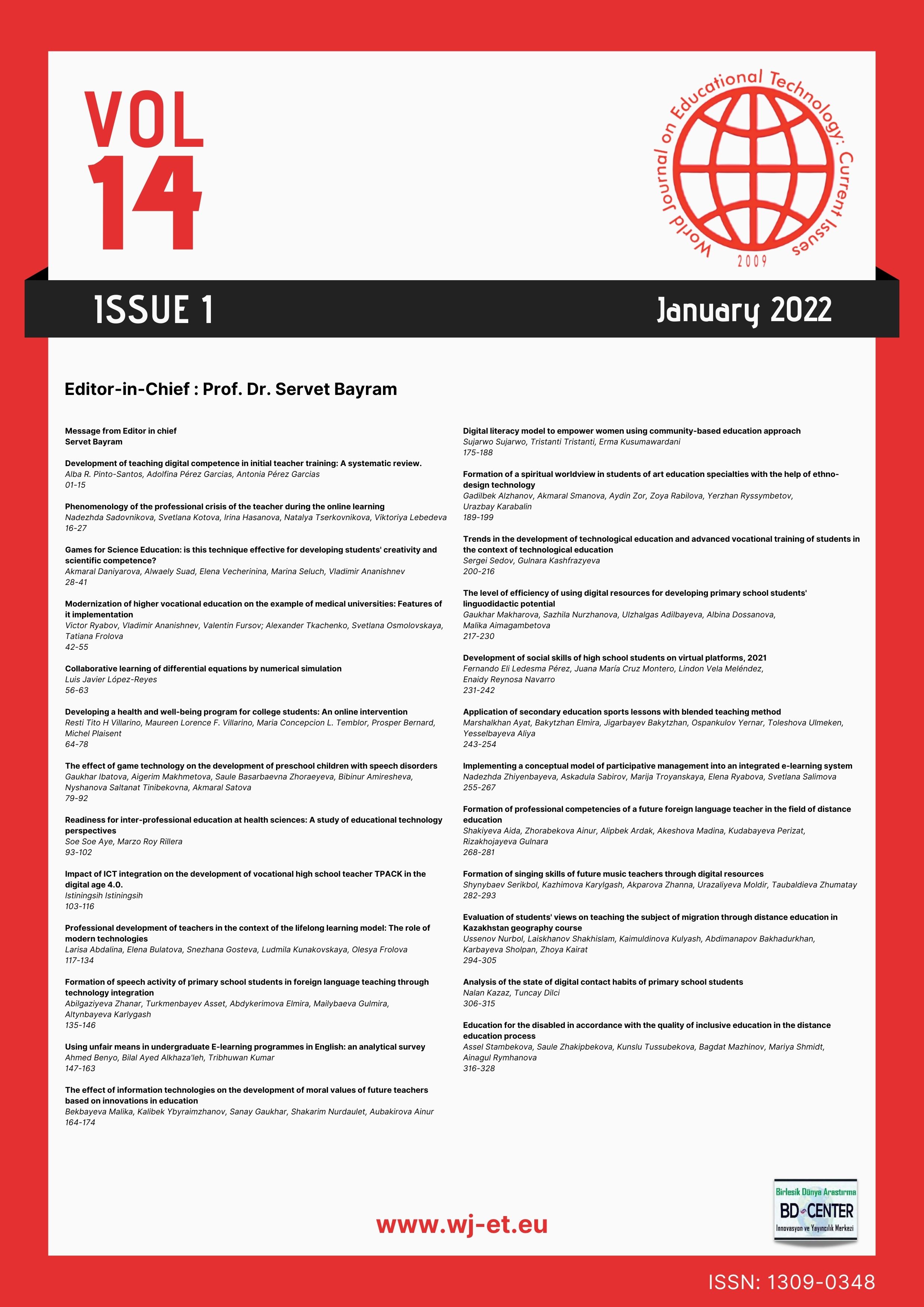Development of social skills of high school students on virtual platforms, 2021
Main Article Content
Abstract
The objective of this study is the development of social skills of high school students in virtual settings. Methodology: Qualitative, phenomenological, hermeneutical study, developed in three stages. In the descriptive stage, planning activities and ethical procedures were socialized; In the structural setting, intervention protocols, contingency plans, methodological memory, approach to participants, and delimitation of roles were foreseen both within and outside the field of study. In the discussion stage, the results were contrasted with recent studies, arriving at definitive conclusions. The technique used was the semi-structured interview, and as an instrument, a guide of questions derived from the subcategories of the study was used. The participants were five students of the sixth cycle of Regular Basic Education (first and the second year of secondary education) with ages of 13 and 14 years, three men and two women volunteers, a teacher (director), and two teachers (without management positions). Experts validated the interview. Results: Reciprocal help in the affective sphere motivates the encounters in virtual settings in the participants. Virtual scenarios mediate effective relationships in a significant way. Conclusions: Reciprocity is a priority element that generates trust and allows participants to understand the needs of their colleagues, virtual spaces serve as emotional support for all their members, and as they all connect with the active cameras, scenarios very similar to those are generated.
Keywords: Social Skills; Emotional Support; Affective Relationships; TIC
Downloads
Article Details

This work is licensed under a Creative Commons Attribution 4.0 International License.
World Journal on Educational Technology: Current Issues is an Open Access Journal. The copyright holder is the author/s. Licensee Birlesik Dunya Yenilik Arastirma ve Yayincilik Merkezi, North Nicosia, Cyprus. All articles can be downloaded free of charge. Articles published in the Journal are Open-Access articles distributed under CC-BY license [Attribution 4.0 International (CC BY 4.0)].
Birlesik Dunya Yenilik Arastirma ve Yayincilik Merkezi (BD-Center)is a gold open-access publisher. At the point of publication, all articles from our portfolio of journals are immediately and permanently accessible online free of charge. BD-Center articles are published under the CC-BY license [Attribution 4.0 International (CC BY 4.0)], which permits unrestricted use, distribution, and reproduction in any medium, provided the original authors and the source are credited.
